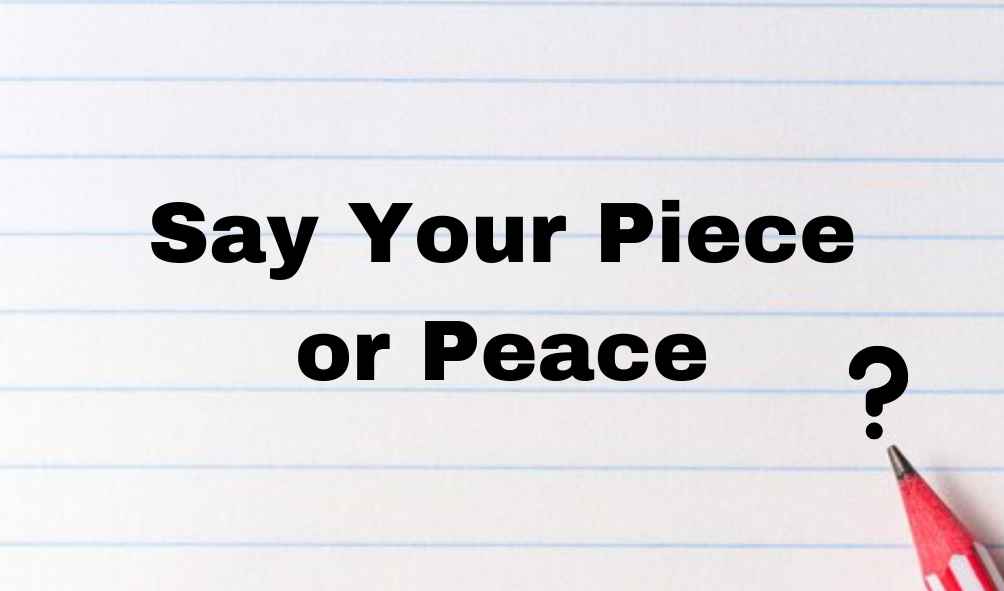Say Your Piece or Peace: Understanding the Difference

In everyday conversations, you might come across the phrases “say your piece” and “say your peace.” While they sound similar, they have different meanings and are used in different contexts. In this guide, we’ll explore the meanings of these phrases, provide examples, and clarify their usage.
What does “Say Your Piece” mean?
“Say your piece” is an idiomatic expression that means to express your opinion or viewpoint on a particular matter. It implies speaking your mind or sharing your thoughts, often in a situation where others are also expressing their views.
Example:
During the team meeting, everyone had the opportunity to say their piece about the upcoming project.
What does “Say Your Peace” mean?
On the other hand, “say your peace” is a misspelling or misinterpretation of the phrase “say your piece.” The correct version is “say your piece,” as discussed earlier. However, “say your peace” is sometimes used informally, especially in casual conversations or online discussions.
Example:
In the heated debate, each person was allowed to say their peace before reaching a decision.
Grammar Example:
Incorrect: He stood up to say his peace about the new policy.
Correct: He stood up to say his piece about the new policy.
Usage Tips:
1. Use “say your piece” when you want to encourage someone to express their opinion or viewpoint.
2. Avoid using “say your peace” as it is a misspelling and may lead to confusion.
Read also: Understanding the Distinction: Misspelling or Mispelling?
Conclusion:
In summary, “say your piece” is the correct phrase, meaning to express your opinion or viewpoint, while “say your peace” is a common misspelling. By understanding the difference between these phrases, you can effectively communicate your thoughts and opinions in various situations.